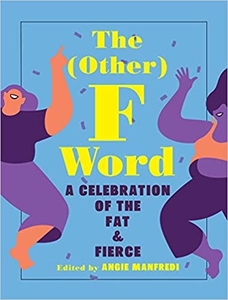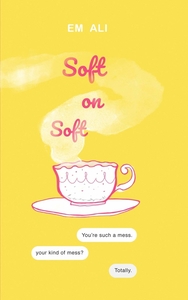If you’re looking for something to make you smile just as much as it makes you think, Lyla Lee’s debut I’ll Be the One is the perfect book for you. It’s categorized as young adult romance, but don’t let that put you off. I’m in my forties and I loved every second I spent withRead More
Danika reviews The (Other) F Word: A Celebration of the Fat & Fierce edited by Angie Manfredi
This isn’t an entirely queer collection, but it refreshingly diverse. There are eleven queer contributors, which is about a third of the entries! LGBTQ Reads just put up a post that has notes from these contributors about their entries, so you can check that out if you want more details. There are also lots ofRead More
Mallory Lass reviews The Summer of Jordi Perez by Amy Spalding
CW: Body shaming and homophobic mother, elaboration at the end Spoilers: Spoilers marked at the end for the first 35% of the book I’ve been wanting to read The Summer of Jordi Parez ever since I attended a 2018 ClexaCon panel where Amy Spalding was a speaker. What jumped out at me during her panelRead More
Danika reviews Moonstruck, Vol. 1: Magic to Brew
I adored this book when I started it. The pastel colours, the adorable art style, the world packed full of magical people of all varieties (living plants! ghosts! centaurs!), and the coffee shop setting. Then you get a f/f romance between two fat poc werewolves (Selena is Black and Julie is Latina)! It also hasRead More
Danika reviews Fat Angie: Rebel Girl Revolution by e.E. Charlton-Trujillo
When I finished Fat Angie, I felt a bit conflicted about it. I liked the character and thought the language use was interesting, but it was so dark that I felt like I couldn’t find even a glimmer of hope. Despite the many strong elements of the novel–who can resist queer girls kissing to the theme songRead More
Danika reviews Fat Angie by e.E. Charlton-Trujillo
When I initially picked up Fat Angie, I was put off by the language. At first, I thought it was outdated slang, cringingly unrealistic. As I kept reading though, I realized that it wasn’t dated, because I don’t think anyone has ever spoken like that. Instead, it has more in common with buffyisms–a kind of fictional teenRead More
Alexa reviews Soft on Soft by Em Ali
Last month, I reviewed a fluffy, romantic, low-conflict sapphic story with at least one protagonist who was fat, non-white, pan and/or ace-spec (Learning Curves by Ceillie Simkiss). This month, I’m reviewing a fluffy, romantic, low-conflict sapphic story with at least one protagonist who is fat, non-white, pan and/or ace-spec (Soft on Soft, a.k.a #FatGirlsInLove byRead More

